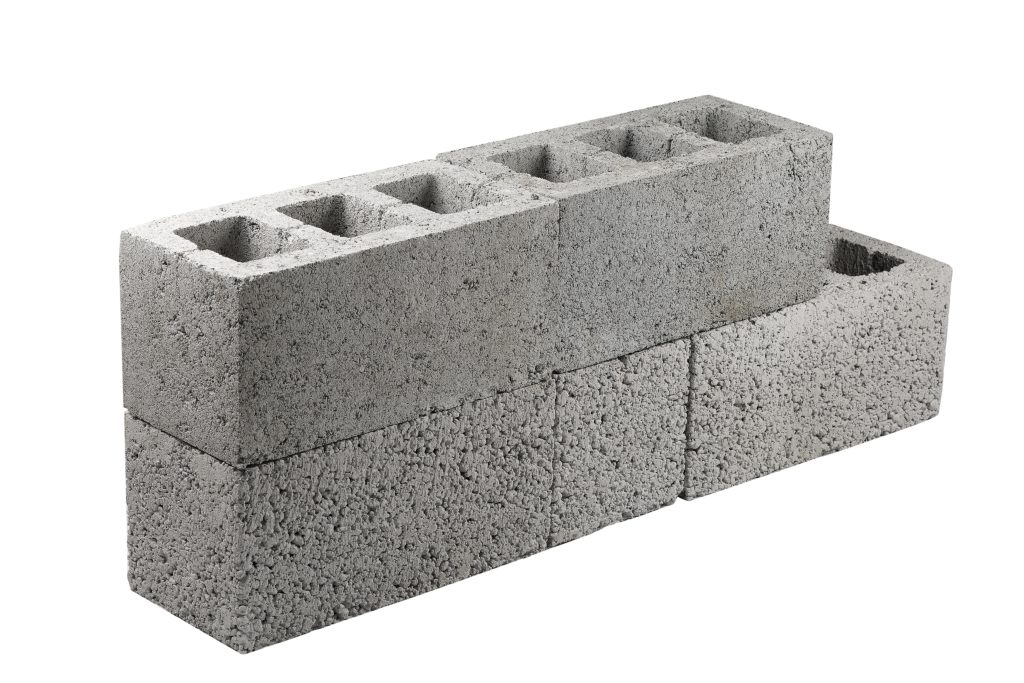What is the Best Cement for Concrete Blocks

Production of building blocks. Composition of foam blocks. Blocks for construction isolate.
If you are planning to build or renovate using concrete blocks, you must place emphasis on choosing the right cement. Cement selection plays an important role in ensuring the strength, durability, and overall quality of the construction project. With the right type of cement, you can achieve structural integrity and long-term stability. If you are wondering which is the best cement for concrete blocks, this guide will help you.
Understanding Concrete Block Construction
Before finding the best grade cement for concrete blocks, it helps to understand the process of how they are made. Concrete blocks can be classified as hollow, solid, paver, and Autoclaved Aerated Concrete (AAC) blocks. The construction process depends on the type of block design and its intended use. Concrete blocks are either handmade or manufactured through machinery. Typically, the cement concrete blocks construction involves the following steps:
- Mixing cement with aggregates like crushed stone or gravel and sand.
- Moulding the concrete mixture into the desired shape using manual casts or machinery.
- Curing the moulds to provide adequate moisture and temperature to the concrete mould.
- The cured blocks are pushed off the steel pallets and passed through a cuber, which aligns and stacks them.
- After cubing the concrete blocks, they are stored and dispatched.
- The last step involves a final quality assessment to ensure blocks retain the maximum strength and all the intended properties.
Different Types of Cements for Concrete Blocks
The following major types of cements used for construction in India are:
Ordinary Portland Cement (OPC)
OPC is the most commonly used cement category in India. With its high binding properties, it is capable of providing compressive strength to concrete blocks. OPC is available in different grades, such as OPC 33, OPC 43, and OPC 53.
Portland Pozzolana Cement (PPC)
PPC is a blend of Portland cement and pozzolanic materials like fly ash, silica fumes, or volcanic ash. Such materials improve the workability and durability of concrete blocks made with PPC. As PPC is highly resistant to dampness and corrosion, it is preferred in locations with high moisture content.
Portland Slag Cement (PSC)
PSC is made by combining Portland cement clinker with granulated blast furnace slag. Blast furnace slag is a byproduct of the iron and steel manufacturing industry. PSC is an eco-friendly alternative to ordinary cement.
Masonry Cement
Masonry cement is a type of cement obtained by intimately grinding Portland cement clinker and gypsum with pozzolanic materials like fly ash and calcined clay pozzolana or inert materials like limestone, granulated slag, carbonated sludge, mine tailings, etc. Air entraining plasticiser is added to ensure a smooth and cohesive mix.
Rapid Hardening Portland Cement (RHPC)
RHPC is used to achieve a higher rate of early strength development. It is manufactured by intimately mixing calcareous and argillaceous and/or other silica, alumina and iron-oxide bearing materials.
Hydrophobic Portland Cement
This cement is obtained by intergrinding OPC 33 grade cement clinker with certain hydrophobic agents. These agents impart water repellent properties to the cement.
Key Factors to Consider While Selecting Cement for Concrete Blocks
Considering the following factors is critical for selecting the best cement for concrete blocks:
Strength
The compressive structure and strength of concrete blocks are indispensable properties. Hence, to make an ideal mortar mix for making concrete blocks, using the cement type that offers the appropriate strength to maintain the structural integrity is important.
Durability
Durability pertains to the resistance of concrete blocks from wear and tear and exposure to harmful elements. To meet the demanding longevity, you need cement that offers resistance to weathering, moisture, and other environmental factors.
Workability
Consider the workability of the cement as it affects how easily it can be mixed, placed, and compacted to form concrete blocks. You can check the workability of the concrete mix using slump test values. Overall, considering workability ensures efficiency in construction processes.
Setting time
Construction projects are completed in a few months or may take years. Variables affecting the duration are the elements used, their setting time, the machinery used. Among these factors, the setting time of concrete blocks can be reduced using the right type of cement. You can check this aspect while considering the options.
Adherence to Standards
The Bureau of Indian Standards (BIS) specifies the code of practice for the construction of hollow, solid, and concrete blocks. You can consider the guidelines stated in the code of practice while selecting the cement. This helps you to get the right quality and performance.
Take your concrete block construction to the next level with the high-quality cement options at JK Cement.
FAQs
Are there any guidelines for the storage and shelf life of cement used for concrete blocks?
Yes, there are. Cement should be stored in a dry, cool, and well-ventilated area to prevent moisture absorption. The shelf life of cement is typically around three to six months from the date of manufacturing. To maintain the shelf life, you must keep the cement away from direct contact with the ground, water, and excessive humidity.
What are the admixtures that can enhance the performance of cement while making concrete blocks?
Some admixtures that can enhance the performance of cement mix are water reducers, accelerators, retarders, air-entraining agents, waterproofing agents, fly ash or slag, and so on.
How does the availability of cement vary across different markets or regions?
The availability of cement varies based on factors such as production capacity, transportation logistics, and local demand. Some regions have considerable availability of cement options from local suppliers, while certain underdeveloped or remote areas have limited availability.